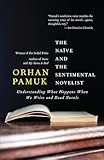In less than a fortnight, Orhan Pamuk, Turkey’s Nobel Laureate in literature, made headlines in Turkish newspapers not once, but twice. It would have been an ordinary thing a few years ago when Pamuk, commonly perceived as one of Turkey’s major political dissidents, would make news with his comments on the killings of Armenians in 1915 or the Turkish state’s heavy handed treatment of its Kurdish minority. But this time newspapers seem to have discovered a new aspect of Turkey’s most famous writer: his private life.

 When Pamuk, who has a daughter from his first marriage that ended a decade ago, started dating Indian novelist Kiran Desai in 2010, photographs of the couple walking on a Goa beach in India were published by a mainstream newspaper edited by one of Pamuk’s old political enemies. Pamuk and Desai were quickly named as a power couple, one journalist calling them Mr. Nobel and Miss Booker. But after two books (Museum of Innocence and The Naive and the Sentimental Novelist, both containing Pamuk’s words of gratitude to Desai for helping him with the final English texts) and numerous interviews accompanying the Turkish edition of Desai’s Booker prize-winning Inheritance of Loss (all of them focusing on details of their relationship rather than Desai’s novel), Turkish media seemed to have lost interest.
When Pamuk, who has a daughter from his first marriage that ended a decade ago, started dating Indian novelist Kiran Desai in 2010, photographs of the couple walking on a Goa beach in India were published by a mainstream newspaper edited by one of Pamuk’s old political enemies. Pamuk and Desai were quickly named as a power couple, one journalist calling them Mr. Nobel and Miss Booker. But after two books (Museum of Innocence and The Naive and the Sentimental Novelist, both containing Pamuk’s words of gratitude to Desai for helping him with the final English texts) and numerous interviews accompanying the Turkish edition of Desai’s Booker prize-winning Inheritance of Loss (all of them focusing on details of their relationship rather than Desai’s novel), Turkish media seemed to have lost interest.
That was until this December, when a young Turkish artist was photographed alongside Pamuk in New York’s Columbus Circle mall. The following week, newspapers were covered with pictures of her paintings and a full page interview in the daily Sabah, whose American version first published the photographs, had the very Flaubertian headline: “I am Füsun from Museum of Innocence!” This was a reference to Pamuk’s latest novel where the protagonist, engaged to be married, begins an affair with a younger girl, who journalists were now eager to identify as having been inspired by Pamuk’s new girlfriend. Among readers of the interview were Pamuk’s loyal fans who hoped to learn bits of information about his new novel which will reportedly be published in Turkish this year. It tells the story of a street vendor who sells “boza,” a traditional Turkish beverage, and there was speculation as to whether the cover of the book would be produced by Pamuk’s new girlfriend, who has painted portraits of boza sellers in the past.
The latest piece of news, the most surprising to date, was published on the last day of the year. It alleged that Pamuk had an “illegitimate son” from a German professor specializing in Turkish literature. Pamuk is claimed to have never seen his son, who is now five years old. These dramatic claims were made by “an old girlfriend of Pamuk,” whose name was carefully left out of the piece.
Turkish newspapers made life very difficult for Pamuk in 2005 when he was turned into a hate figure by the ultra-nationalist Ergenekon gang which is claimed to include, alongside retired generals, solicitors, and politicians, a number of journalists who orchestrated campaigns against Turkey’s dissident figures, labeling them as traitors and enemies of the country. During 1990s right-wing newspapers were notorious for their portrayal of Kurdish and socialist intellectuals: many artists, like the singer Ahmet Kaya, were forced to leave the country after editors made a habit of picking on them. Last year a Kurdish MP was forced to resign after photographs showing him with a girlfriend were published in the papers.
With their newfound “private” methods, editors seem to have inflicted a deep wound as they turned the famously reserved Orhan Pamuk, whose political views continue to disturb the ultra nationalists, into a playboy figure in just a few weeks. It looks like an attempt by editors to exact revenge by hitting him below the belt. For Pamuk’s loyal readers, all this surely reads like one of Pamuk’s own novels which always feature him as a character, but the serious point to be made here is that Turkish media’s attempts to trivialize dissidents by focusing on their private lives has a touch of the News of the World scandal about it, and this new tactic will probably be a new cause of concern for Turkey’s dissidents this year.









